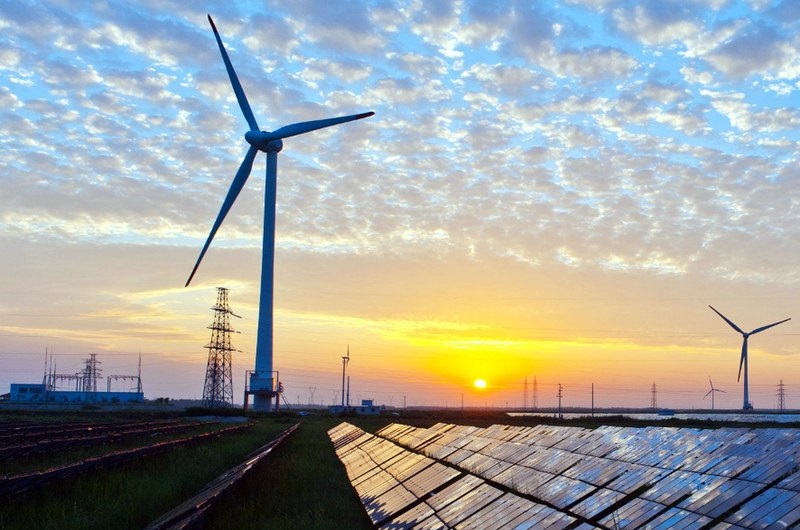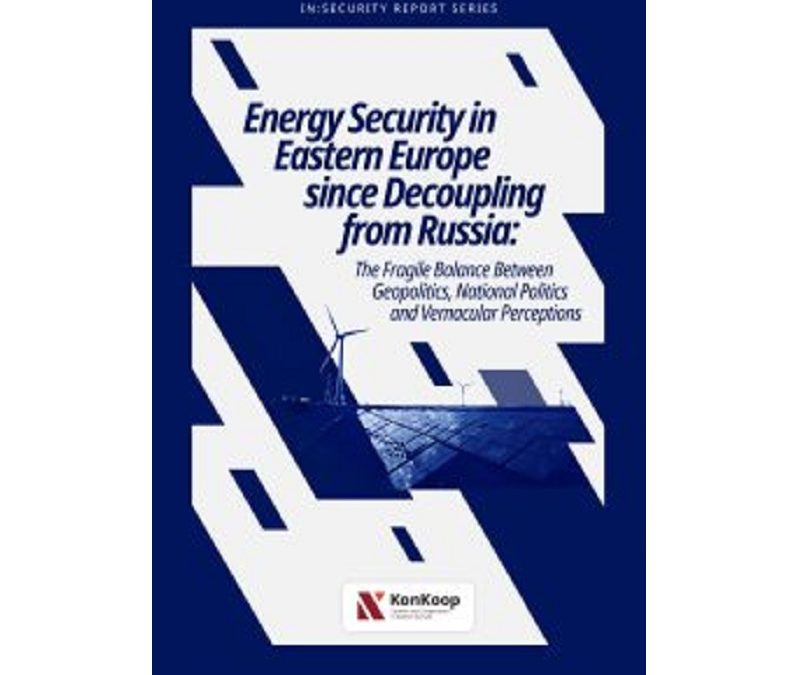Authors: Nadja Douglas, Sophie Lambroschini, Michael LaBelle, Vineta Kleinberga, Ana Otilia Nuțu, Andrian Prokip
Published online: 7 November 2024


Convener: Nadja Douglas (ZOiS)
The debates following the Russian invasion of Ukraine in February 2022 highlighted many dimensions of Europe’s vulnerability, in particular with regard to energy supply, security and infrastructures. In Eastern Europe, the decoupling from Russian fossil fuels presented countries with the major challenge of energy transition. The need to avoid sanctioned Russian and Belarusian territory also meant that alternative transit routes had to be identified. Another significant challenge centers on the decoupling of critical energy infrastructure from post-soviet grids, and hence from Russian dominance. While the Baltic states were originally set to disconnect from the Russian grid by early 2025, Lithuania is now lobbying for an earlier timeline. At the same time, there are concerns regarding rising costs as well as the risk of blackouts. The synchronization of Ukraine and Moldova with the European continental network was, however, realized ahead of time in 2022. Safety and environmental standards as well as market compatibility are other important aspects. All of this highlights the complex dynamics of the region’s energy infrastructure between security, economic and societal considerations. Continuing the debate around different layers and perceptions of in:security in Eastern Europe, this workshop will take a closer look at the implications of changing energy infrastructures and related security concerns in the post-soviet sphere. We will focus on the following guiding questions:
Panels:
Critical energy infrastructures in Eastern Europe post February 2022: A strategic perspective
Michael LaBelle, Associate professor at Central European University, Department of Environmental Sciences and Policy
Andrei V. Belyi, Associate Professor at the University of Eastern Finland, CEO of the energy consulting firm Balesene OÜ, Estonia
Chair: Dr. Sophie Lambroschini, Centre Marc Bloch, Berlin
Rising costs, changing landscapes and blackout fears: The societal dimension of decoupling and energy transitions in Eastern Europe
Vineta Kleinberga, Researcher, Rīga Stradiņš University, Faculty of Social Sciences
Andrian Prokip, Director of the Energy Programme at the Ukrainian Institute for the Future
Ana Otilia Nuțu, Energy policy analyst, Expert Forum (EFOR), Romania
Chair: Dr. Benjamin Beuerle, Centre March Bloch, Berlin
Report:
The debates following the Russian invasion of Ukraine in February 2022 highlighted many dimensions of Europe’s vulnerability, in particular with regard to energy supply, security and infrastructures. In Eastern Europe, the decoupling from Russian fossil fuels presented countries with the major challenge of energy transition. Looking at the risks of decoupling from post-Soviet critical infrastructure and the vulnerability of supply chains, ZOiS conducted the second workshop in the context of the KonKoop thematic line “In:Security in Eastern Europe” laying again an emphasis on the societal dimension and perception. The workshop brought together experts with both an academic and practitioner background.
The first panel on the strategy perspective set off with Michael La Belle, Associate professor at CEU, who provided an overview of the manifold changes that have taken place with regards to energy security in Eastern Europe. By increasingly investing in renewable energy supply, Eastern European states had left energy interdependence with Russia behind and entered a new era of increased energy solidarity and integrated energy sovereignty (ability of the state to secure its energy system against external threats). Andrei V. Belyi, Estonian entrepreneur and Adjunct professor at the University of Eastern Finland, reflected upon aspects of energy diversification, infrastructure costs and safety from the perspective of the Baltic states. Outlining the roadmap towards electricity desynchronization from Russia by 2025, he drew attention in particular to chances and challenges of wind power investments. Andrian Prokip, Director of the Energy Programme at the Ukrainian Institute for the Future, finally focused on the risks related to decoupling from Russian energy that emanate from Russia itself, such as sabotaging efforts at various levels. Furthermore, he presented lessons from the Ukrainian experience of blackouts as immediate consequence of electricity disconnection from Russia in 2022.
As part of the second panel, dedicated to the societal implications of energy transitions in Eastern Europe, Vineta Kleinberga, from Rīga Stradiņš University, Latvia, reflected on energy (in)security in Latvia since the Russian invasion of Ukraine. She focused on concerns and implications regarding safe and affordable energy for households and the national economy as well as the risk of local vulnerabilities and the spread of disinformation on disadvantages of disconnecting with Russia. She moreover showed how security and economic concerns prevail in Latvia over environmental sustainability. The panel was concluded by a perspective on Moldova by Ana Otilia Nutu, energy policy analyst at Expert Forum (EFOR), Romania. She delineated Moldova’s path of energy emancipation from Russia by the diversification of energy suppliers and the synchronization of its electricity grid, together with Ukraine, with the European power network (ENTSO-E) in 2022. Moldova’s turn to the West, also in an energy-political sense, nevertheless bears challenges and the potential for further geopolitical turmoil due to the unsolved status also with regard to energy issues of its break-away region Transnistria.
An important takeaway from the ensuing discussions was that energy security remains a highly subjective issue depending on the respective state, company or consumer perspective. Furthermore, there is a common struggle to reduce dependencies on Russia in the gas, electricity and nuclear sectors, but obstacles vary. The transition and investment in renewables continue to face huge challenges, such as regarding capacity and storage.
The event was moderated by KonKoop associated researchers Sophie Lambroschini and Benjamin Beuerle, both from Centre March Bloch in Berlin.

Authors: Nadja Douglas, Sophie Lambroschini, Michael LaBelle, Vineta Kleinberga, Ana Otilia Nuțu, Andrian Prokip
Published online: 7 November 2024